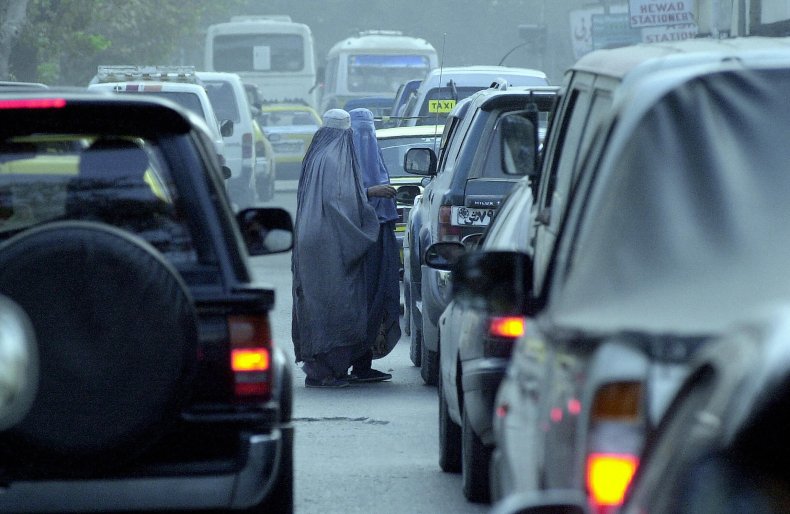The Taliban announced on Sunday that Afghan women could no longer travel distances of over 45 miles without the presence of a "close male relative," adding that vehicle owners should refuse rides to women not wearing headscarves.
Along with this directive, the Taliban's Ministry for the Promotion of Virtue and Prevention of Vice asked that people stop playing music in their cars. These moves, follow similar orders aimed to roll back the public presence of women, such as a call to TV networks asking that stations stop showing programs with female actors and that TV journalists wear hijabs.
"Women travelling for more than 45 miles [72 kilometres] should not be offered a ride if they are not accompanied by a close family member," ministry spokesman Sadeq Akif Muhajir told Agence France-Presse (AFP) on Sunday, specifying that the close family member be male.
Human rights organizations swiftly came out against the new measure, with Heather Barr, Human Rights Watch's associate director of women's rights, telling the AFP that the measure moves the country "further in the direction of making women prisoners."

"[It] shuts off opportunities for them to be able to move about freely, to travel to another city, to do business, [or] to be able to flee if they are facing violence in the home," Barr said in an interview with the AFP.
The Taliban's Deputy Minister of Foreign Affairs Sher Mohammad Abbas Stanikzai admitted during a Sunday press conference that "hundreds" of Afghans were fleeing the country to Iran on a daily basis, Afghan news entity TOLOnews reported. Earlier this month, the Associated Press reported that thousands of Afghans were crossing the border into Iran each day.
Men make up a significant number of those fleeing, but a smuggler told the AP that she moved women and children too. The AP's report focused on the economic reasons for migration which have become heightened as the country's economy has tanked under Taliban rule. However, humanitarian issues have played a large role in the movement as well, the UNHCR wrote.
Since January 2021, the United Nations High Commissioner for Refugees reported that over 667,900 Afghans have been forcibly displaced, with 80 percent of those being women and children. In response, the UNHCR has joined forces with UN Women to "protect" the rights of women in the region.
"Afghan women and girls face unique vulnerabilities and risks as gender inequality is interwoven with conflict dynamics and humanitarian needs," the entities wrote in a statement. "Recognizing how gender inequality is shaping the ongoing humanitarian crisis in Afghanistan, UNHCR and UN Women committed to further strengthen their partnership to protect the rights of women and girls in Afghanistan."

Post a Comment